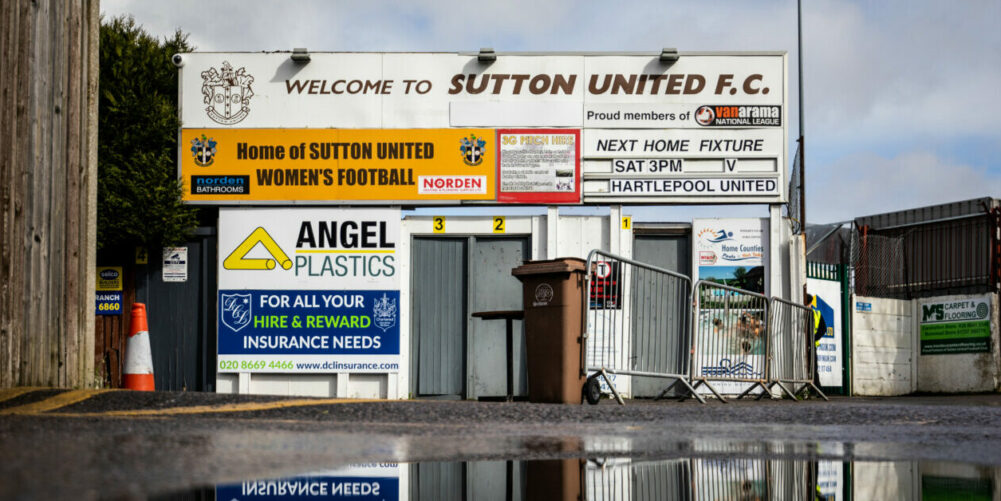Premier League decision will impact Non-League football
For those of us steeped in football, it is natural to see the Premier League as an unassailable force.
A sporting Godzilla, voracious and rampant, answerable to nobody and impervious to attack. Yet as the government of France demonstrated this week, there are far bigger beasts out there.
On Tuesday, without warning or consultation, French prime minister Edouard Philippe announced that “big sporting affairs” could not resume until September. No ifs. No buts. No compromise.
“The 2019-20 season of professional sports, including football, will not be able to resume,” he said.
Philippe’s announcement stunned French football’s governing body, the Ligue de Football Professionnel, who at that very moment were busy thrashing out plans for a return to training.
Whilst hardly ignorant of wider issues around Covid-19, the LFP had believed broadly in its own autonomy.
Pressure from UEFA to finish the season and demands from broadcasters to fulfil contractual obligations were its chief concerns, driving a myopic determination to play Ligue 1 to a close.
If that sounds familiar, it should. Identical incentives underpin the Premier League’s insistence on playing the final 92 fixtures of 2019-20.
That objective has led to growing fears among players and club staff that they will be forced back to action before it is safe, potentially jeopardising the health of vulnerable relatives.
And with no clear start date in mind, it has caused paralysis, uncertainty and division throughout the pyramid.
The EFL is sitting tight, waiting for the Premier League to say jump. Yet many of their clubs cannot afford to play games behind closed doors, which is the only viable way of staging matches in the near to medium term.
Owners and chief executives cannot plan. Recruiters cannot recruit. Players cannot find new jobs. Many whose contracts expire in June will not be paid beyond that point, and have reportedly been asked by the PFA whether they would be willing to play for free if the season extended into July. If the answer is no, what happens then?
Meetings between various factions are scheduled with the frequency of COBRA, but collaboration is scant. “Every time League One and Two get on the phone to each other, they just start arguing,” one National League manager told me this week. “They can’t even decide what to do about contracts, let alone how to finish the season.”
Meanwhile, the EFL is dangling the carrot of possible promotion in front of National League nostrils, passing all of those problems a little further down the chain.
Tellingly, last week’s National League letter to member clubs began with a reminder of the “long struggle” to acquire a second promotion place into the EFL.
A desire to protect that prize is the only reason the National League did not unilaterally declare a write-off weeks ago.
Like the EFL, they know perfectly well that the majority of their members desire a null-and-void season, but are being forced to delay and prevaricate by the powers above.
If the UK government followed the example from France, all of that uncertainty and rancour would end at a stroke. There’d be anger. Inconvenience. Financial hardship. A decision would still be required on issues of promotion and relegation, albeit with play-offs removed from the equation.
But there would also be clarity; a start date to work to, a basis for financial planning and a chance for the whole of football to plan – carefully and maturely – for a straitened future that may not see supporters in stadiums until 2021.
Instead, our government is actively aiding the Premier League’s attempts to kick-start the season with seemingly scant regard for the ramifications below.
According to reports, top-flight clubs were made aware ten days ago that the government favoured a rapid return to football in order to boost public spirits.
A meeting to nail down specifics was held on Friday with suggestions that a small handful of neutral venues will be used. Was there any certainty that football could be played, the government’s stance might be justified. We’d all love to watch a game again.
But with police warning of logistical problems, a reported 66,000 tests required, contracts expiring all over the shop and footballers at all levels reluctant to put themselves at risk, there is no such guarantee.
In effect, then, the government is simply exacerbating the wrangling and division, the financial uncertainty and the myriad other issues causing stress, anxiety and hardship in the pyramid.
Football below the top-flight needs a fresh start and time to reset, not a messy and endless conclusion. It needs somebody with more muscle than the Premier League to wade in and stop the beast in its tracks. Not a government using Premier League football to score an easy PR victory.
























